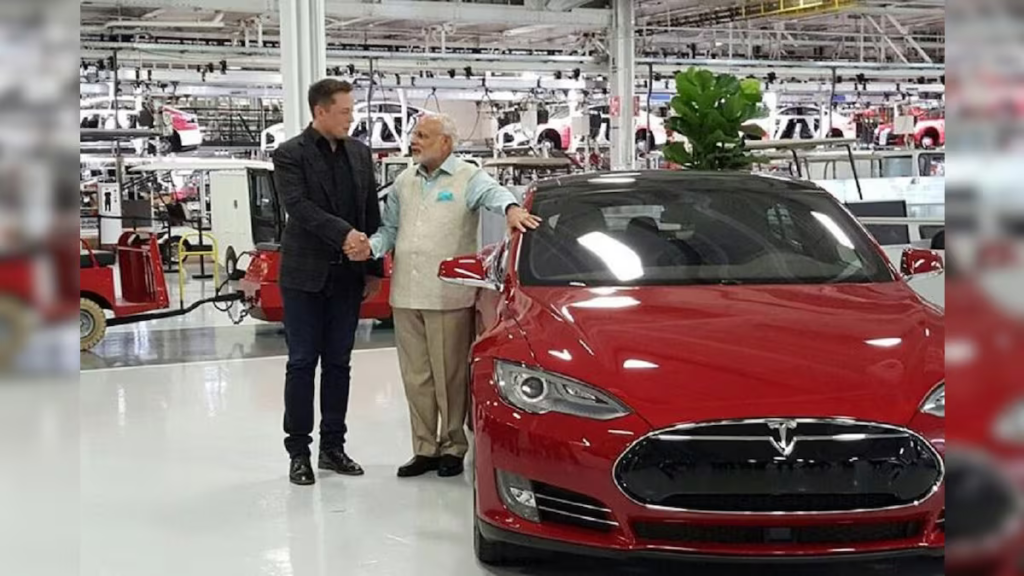Menu
Menu

Updated on Jun 21, 2023 | 5 min read
The electric vehicle market in India has immense potential. India is the 5th largest global auto market by volume and offers a promising landscape for electric vehicles. Both state and central governments in India have begun to recognize the tremendous benefits of embracing electric vehicles.
However, it remains a question as to why Tesla’s absence from the Indian market is frequently lamented, even after a decade. It is important to clarify that Tesla has not been inactive or uninvolved in India. Tesla has hinted at a foray in Indian market since 2019 and has taken steps to establish a presence in the country by registering a corporation in Bengaluru. Furthermore, Indian officials have confirmed that nearly seven Tesla models meet roadworthy standards.
Elon Mush has stated, “We wish to do so (launch in India), but import duties are the highest in the world by far of any significant country!” This indicates that India’s climate ambitions appear to conflict with the fact that clean-energy vehicles are taxed and regulated in the same manner as conventional automobiles.
Import duties poses a challenge for Tesla to offer their vehicles at competitive prices in the Indian market. Ball remains in Indian government’s court, how they will address these concerns and create a favorable environment for the growth of the electric vehicle market, including the entry of companies like Tesla.
Tesla has no immediate plans to build a production facility in India. They prefer to wait and see how India responds to the idea of future cars before launching a full-scale production line. Furthermore, EV sales in India currently account for about 1% of overall vehicle sales, and there is no indication that Tesla cars would fly off the dealerships when they arrive in India. That doesn’t mean that the manufacturing facility will be a huge success even if they do, though it is possible.
GM and Ford have previously pulled out of India after decades of investment, despite the country’s rapid economic growth. They built massive manufacturing plants only to discover that customers looking for the best deal opted to shop around for more economical options. So you can see why Tesla would much rather wait “Making in India” and sell imported vehicles directly to Indians.
The issue of import duties is indeed crucial in the context of Tesla’s entry into the Indian market. It is well-known that India imposes substantial import duties as a means to encourage local manufacturing. Providing tax cuts exclusively to foreign companies like Tesla could potentially be seen as favoritism, leading to concerns among local manufacturers.
Balancing the interests of local manufacturers, foreign companies, and the growth of the electric vehicle industry is undoubtedly a complex task. The government needs to carefully consider various factors, such as the potential impact on domestic manufacturing, job creation, technology transfer, and overall economic growth.

Content Writer
© 2024 Massive Mobility Private Limited. All rights Reserved